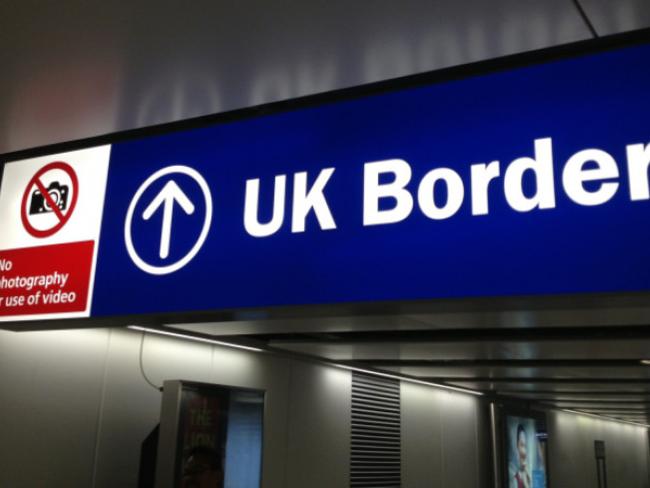The increase in net migration into Britain is mainly driven by legal routes and not by people smuggled into the country. The latest figures show that the number of visas continues to rise, as a result of government policy.
The government issued 1.4 million visas last year, excluding visitors. The two largest categories were 616,000 for foreign workers and their dependants (up from 421,565 in 2022) and 605,000 for students and their relatives. It’s these two which underly the jump in immigration.
Open door
The UK population was around 58 million in 1996; net inward migration was relatively stable, below 100,000 each year. But in 1997 the incoming Labour government imposed its open door policy, which all successive governments have maintained. The result was a sustained increase in net migration: by 2021 the population had reached 67 million.
After the disruption brought about by the Covid pandemic, the upward trend in net inward migration resumed and increased. This is due in large part to changes brought about by the introduction of the Skilled Work Visa.
Promises
Despite promises in the Conservative Party manifesto for the 2019 general election, work visas have not been targeted at highly skilled workers in shortage areas.
Threshold pay levels are barely above the minimum wage; the requirement for jobs to be advertised in Britain first has been effectively dropped; the list of supposed shortage areas covers every job imaginable; and there is no longer any cap on the number of visas issued.
‘Government has no effective control over legitimate migration to Britain.’
In short, government has no effective control over legitimate routes to migrate to Britain – just as it has failed on dealing with people smuggling and illegal routes. Employers can offer jobs to new migrants from anywhere in the world as easily as they could to EU workers before Brexit.
The Office for National Statistics recently forecast that if this policy continues, our population will increase to 70 million in two years’ time, 74 million in 2036, and 76 million by 2046. That may be an underestimate given the track record of official forecasts – they have consistently underestimated the extent of migration for at least 20 years.
Net immigration is expected to account for over 6 million of the projected 6.7 million population increase between 2021 and 2036. Based on existing polices, the ONS forecasts that 13.7 million more people will arrive here by 2036.
The pattern of migration to Britain has changed since 2019. Few people now come from the EU and many more dependants come on the back of both work and student visas.
Budgets
The Home Office is spending £5.4 billion on housing and supporting migrants, and wants another £4.3 billion. That does not account for the necessary spending on schools, hospitals and other essential services – the budgets for which are severely lacking.
The government recently announced changes to visa rules, mostly operative from April. Care workers’ visas will no longer cover family members. A few jobs have been taken off the shortage occupations list and income limits for some Skilled Worker visas will increase – but critically that does not apply to health and care workers, the sector accounting for a high proportion of the increase in work visas.
‘Workers arriving here will have to join the fight for pay and conditions.’
Whether these measures have any more impact than previous government policy remains to be seen. What’s certain is that workers arriving here will have to join the fight for decent pay and conditions. A TUC report last year found and that the care sector is riddled with low pay and bad conditions, particularly affecting migrant workers.
Employers can pay lower wages to migrants filling jobs on the extensive shortage occupation list. All the while that exists and there is no effective requirement to attempt to fill vacancies locally, the situation isn’t going to change greatly.

